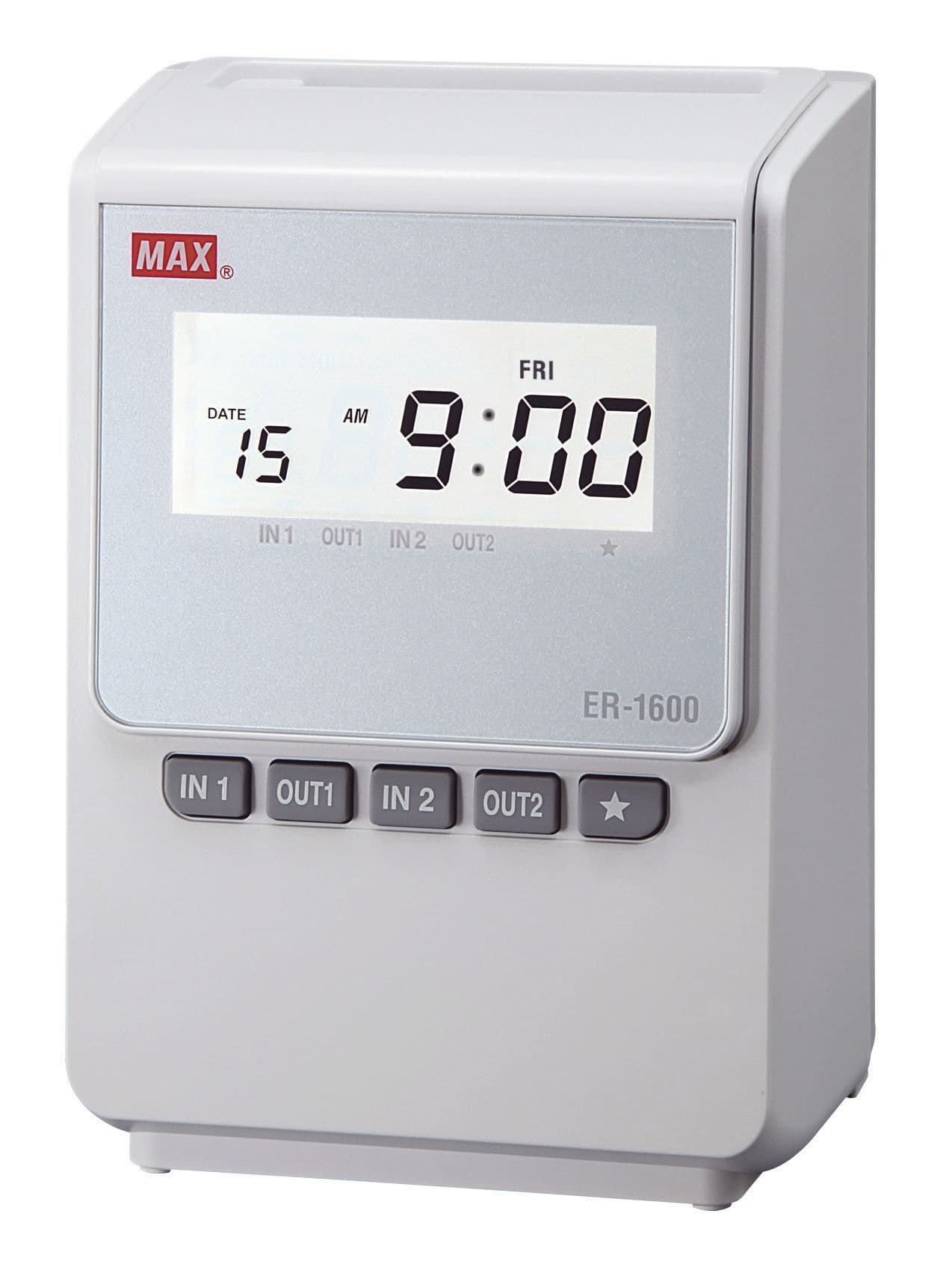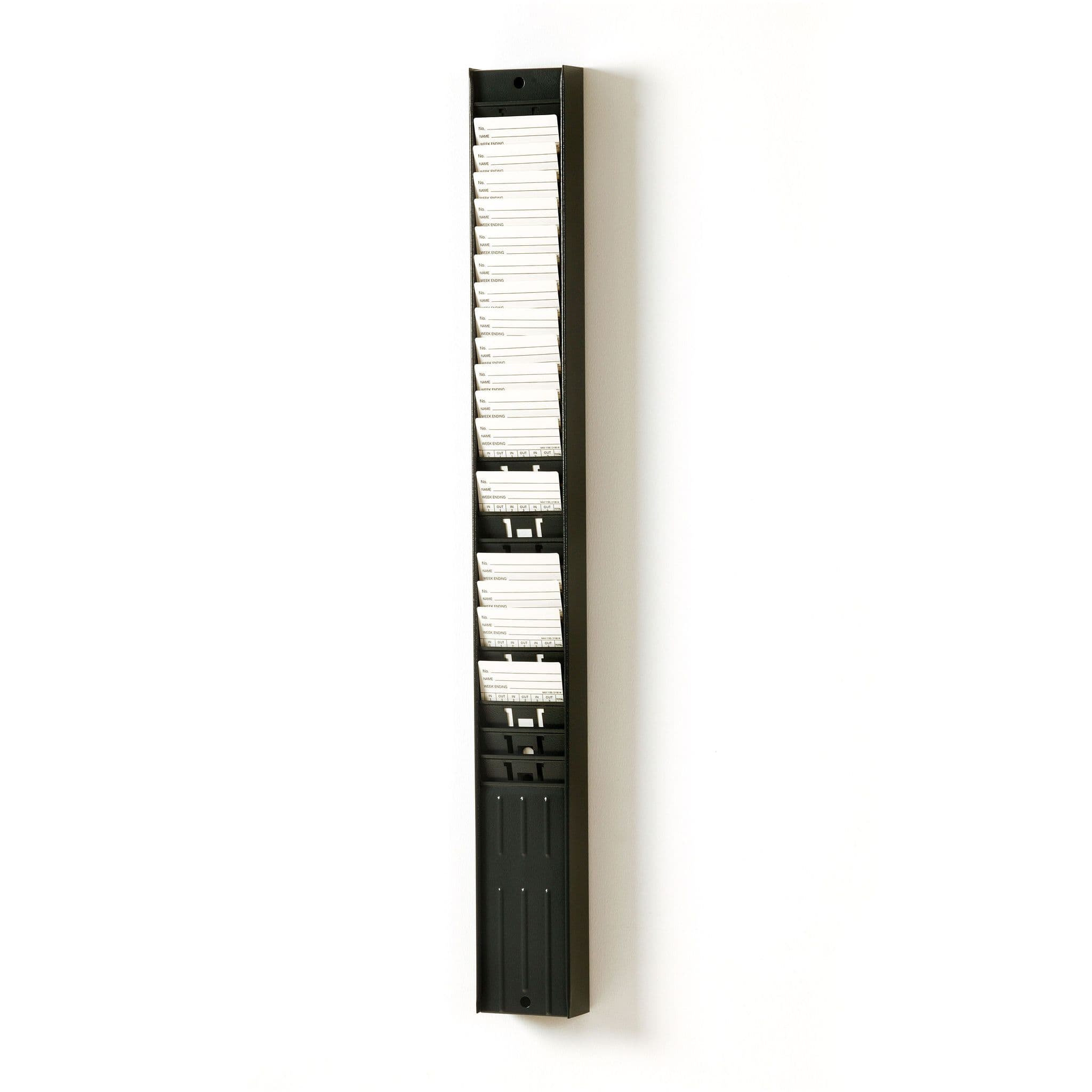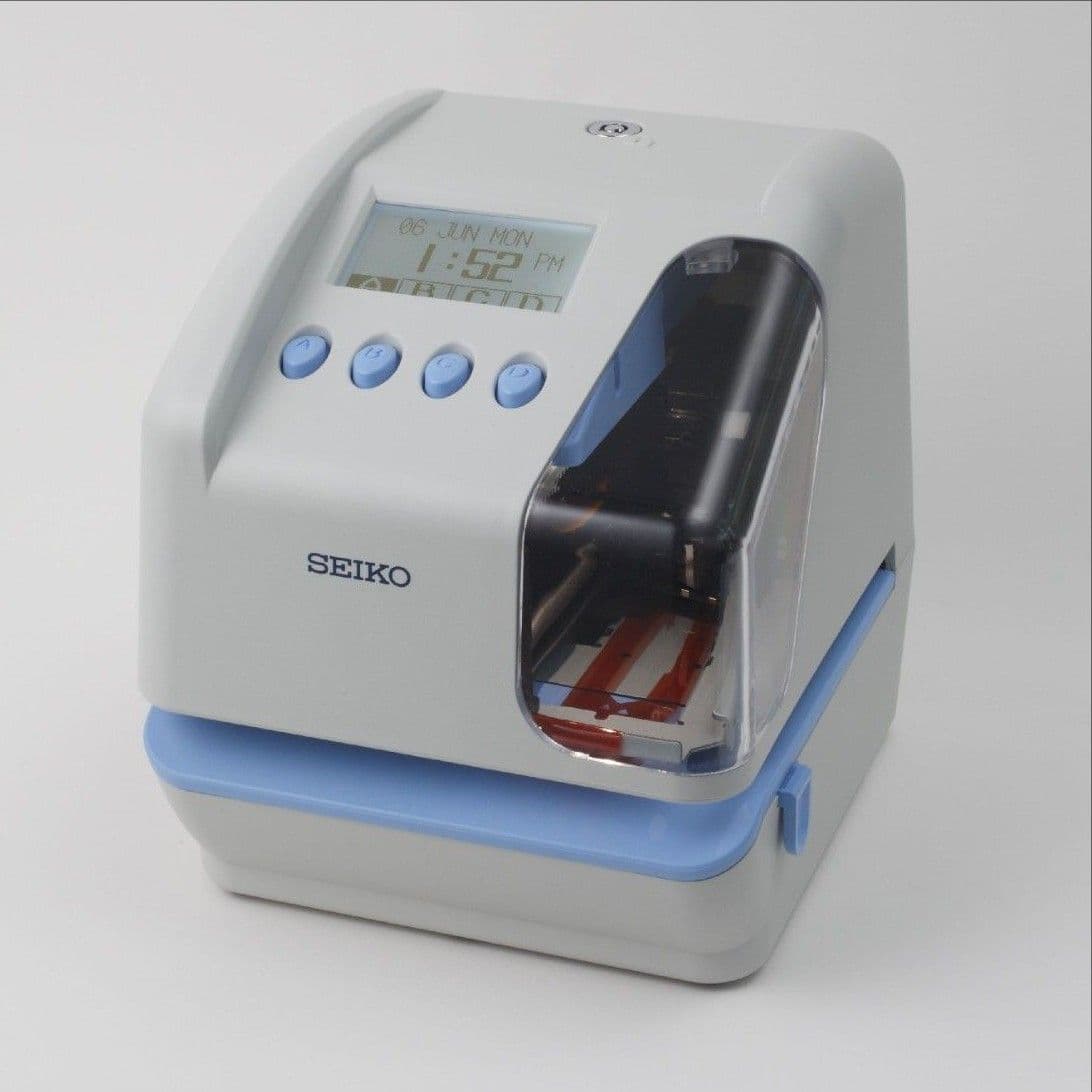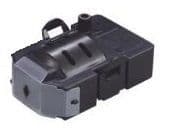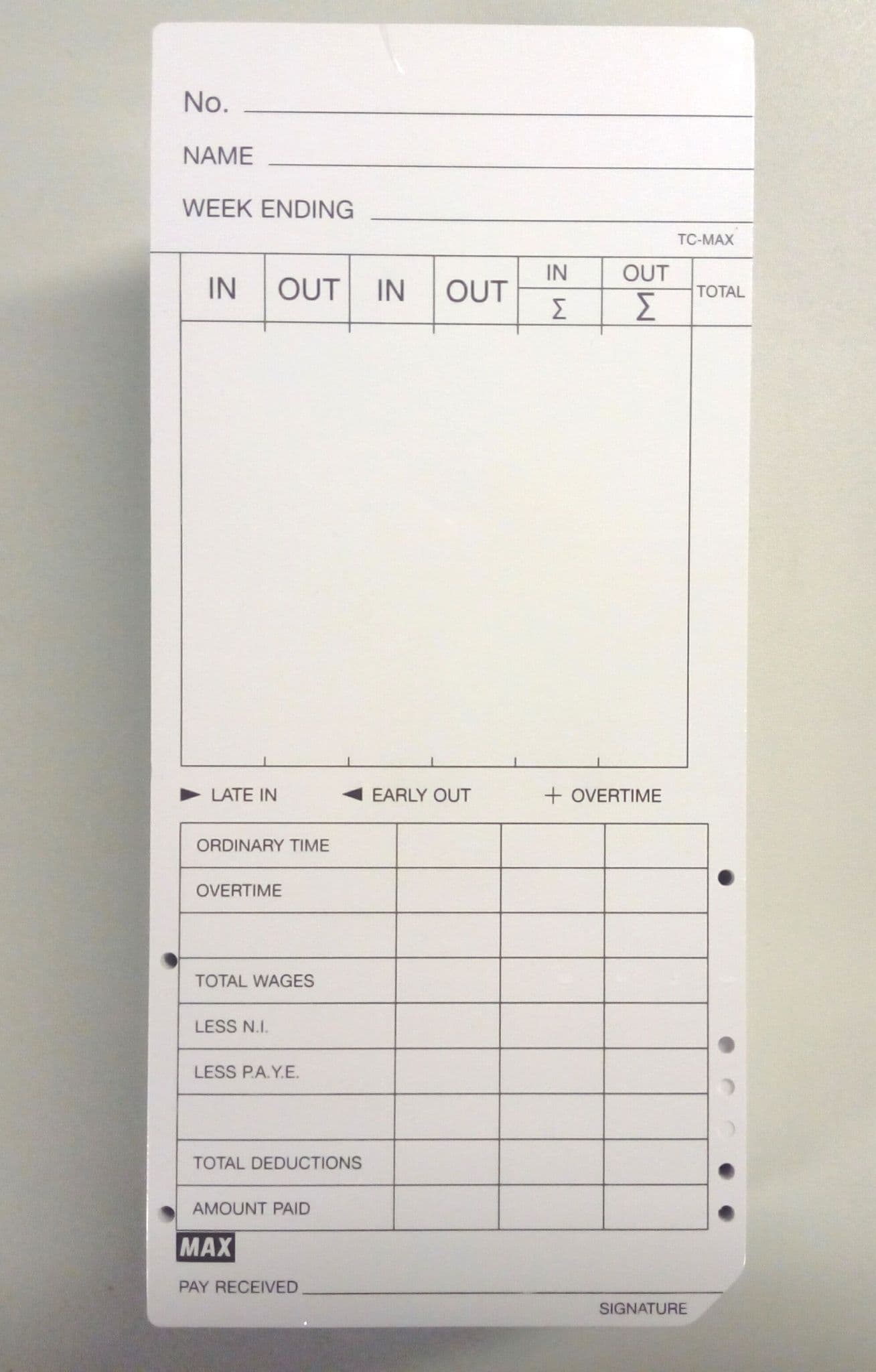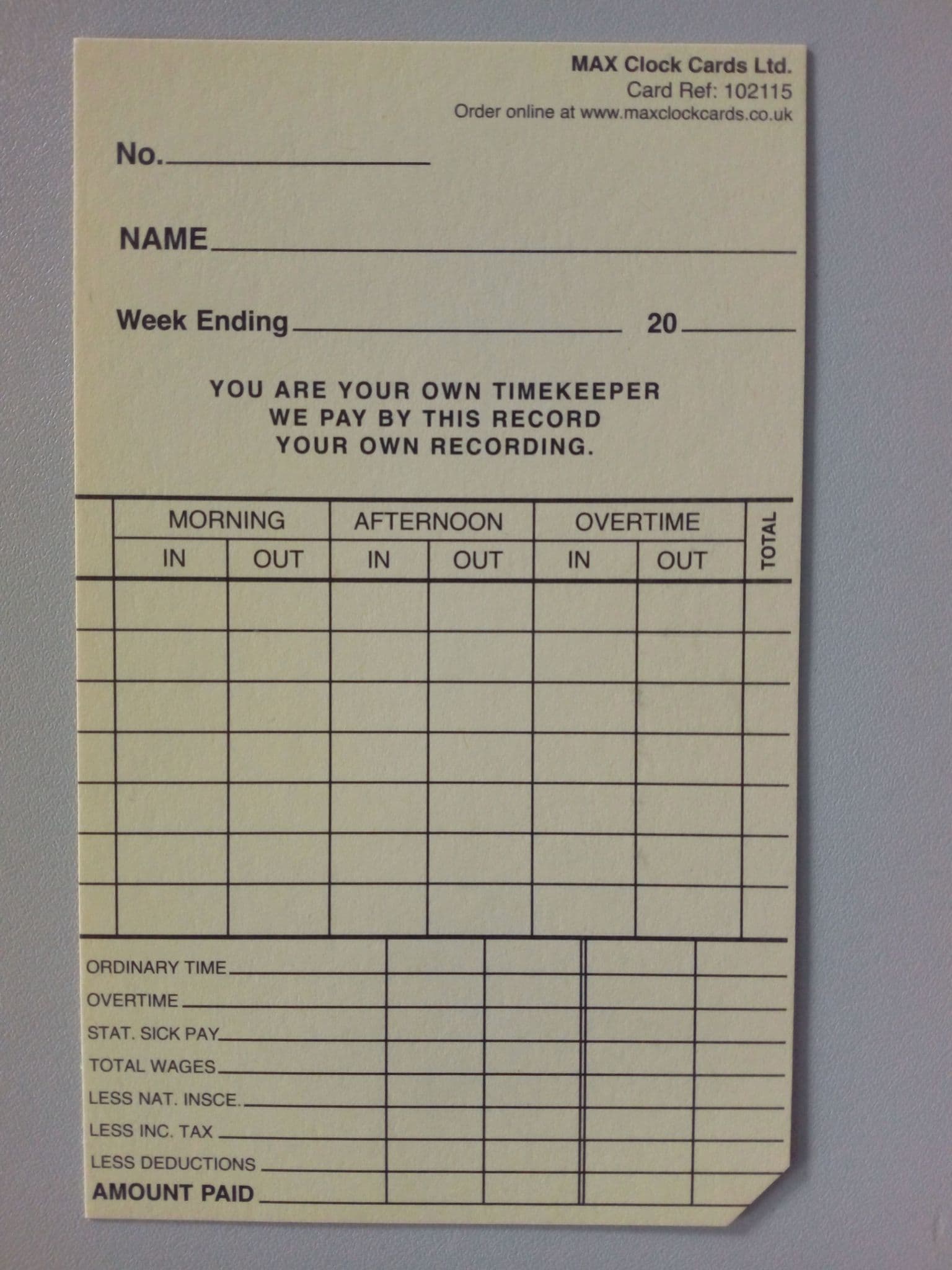 &
&
Authorised Distributor
NEXT DAY delivery available
on most products
 Time Date Stamps
Time Date Stamps
NEWS
1) Counterfeit  clock cards
clock cards
It has come to the attention of that unofficial counterfeit MAX clock cards are being advertised on the web. Therefore, from January 2019, the MAX logo will be printed on all new genuine MAX clock cards (SKU: TC-MAX and TC-MAXMONTH) we sell and also distribute via our trade dealer network throughout the UK & Ireland.
that unofficial counterfeit MAX clock cards are being advertised on the web. Therefore, from January 2019, the MAX logo will be printed on all new genuine MAX clock cards (SKU: TC-MAX and TC-MAXMONTH) we sell and also distribute via our trade dealer network throughout the UK & Ireland.
MAX Clock Cards Limited is the ONLY authorised UK importer of genuine clock cards.
clock cards.
Unofficial, fake or counterfeit MAX clock cards may cause problems with your time recorder and additionally will void any applicable warranty. If you have any questions about whether your MAX clock cards are genuine or not, please do not hesitate to contact us.
2) Is it Time to Re-introduce the Clock Card System? [Part 1]
RE: COVID-19 / Coronavirus. If you have a biometric attendance system (hand or fingerprint) do you wash your hands after you have clocked in or out? You should. Or don't you, risking COVID19 / Coronavirus?
Would it better to replace such a system with traditional time recorder where each person has their own clock card, which they alone should use?
Is it Time to Re-introduce the Clock Card System? [Part 2]
Some organisations will already operate a clock card system for recording hours worked by employees. However, there will be a number of organisations that do not record the hours that are worked by their employees, for a variety of reasons; and it is for those organisations/employers that this article is relevant.
In May 2019, the European Court of Justice held that, in order to comply with the provisions of the EU Working Time Directive on maximum weekly working time and daily and weekly rest, employers are obliged to set up a system for measuring actual daily working time for individual workers.
In Great Britain, the Working Time Regulations 1998, (which implement the European Working Time Directive) impose a requirement on employers to maintain 'adequate records' demonstrating whether the weekly working time limits and the night work limits are being complied with; but it does not require recording of daily or weekly rest and it does not specifically require all hours of work to be recorded. Guidance from the Health and Safety Executive (HSE) states that specific records are not required and that employers may be able to rely on existing records maintained for other purposes, such as pay, in order to meet their obligations.
The case before the European Court of Justice:
A Spanish workers' union (Federación de Servicios de Comisiones Obreras (CCOO)) brought an action before the National High Court in Spain seeking a declaration that Deutsche Bank SAE was under an obligation to set up a system to record the actual number of hours worked each day by its staff, making it possible to check that the working time limits laid down in national legislation and collective agreements were properly adhered to. The bank used an Absences Calendar which only permitted the recording of absences for full working days (annual leave, sick leave etc.). Actual hours worked on a particular day were not recorded.
The Spanish court asked the ECJ whether the Directive and/or Article 31(2) of the EU Charter of Fundamental Rights imposes such an obligation.
The ECJ concluded that in order to guarantee employees' rights under the EU's working time directive and the charter of fundamental rights, member states "must require employers to set up an objective, reliable and accessible system enabling the duration of time worked each day by each worker to be measured."
The court added that EU member states (which the UK currently remains at the moment) would have to determine specific arrangements for the implementation of such systems themselves, while taking into account, where applicable, of any national or industry specific peculiarities.
Without a system to record working hours, the court said, employees could not reliably determine the length of their working hours or rest periods, making it "excessively difficult, if not impossible in practice, for workers to ensure that their rights are complied with."
What does this mean?
The ruling could have far-reaching consequences and it is for member states to decide the specifics. Consequently, we await to see if the UK Government introduce an amendment to the Working Time Regulations specifying what employers need to record.
What it does mean is that Employers are going to have to review how they record start and finish times, and rest periods, including who will maintain the records and how the information will be collected. The information will apply to all workers – factory / office workers, shop workers, drivers, peripatetic workers, home workers etc.
However, be aware, biometric time and attendance systems are not the panacea some people make them out to be. For instance, it was reported on 14 August 2019 by the BBC that "more than a million fingerprints and other sensitive data have been exposed online by a biometric security firm... [from a security tool which] is used by thousands of companies worldwide, including the UK's Metropolitan Police, to control access to specific parts of secure facilities.... As well as fingerprint records, the researchers say they found photographs of people, facial recognition data, names, addresses, passwords, employment history and records of when they had accessed secure areas." The original article can be accessed here.
Therefore, as the title suggests it perhaps a better way of dealing with Working Time Regulations would be to (re-)introduce a clock card system. Whilst not all employers will welcome the changes that are likely to be required as they may seem burdensome, but at least they would be compliant without the risks of a biometric data beach! And, on the flipside it might highlight timekeeping issues; so there may be a ‘silver lining’ for employers, as it might result in employees actually turning up for work on time, given the requirement (by EU law) to implement a time recording system! Check out our MAX & SEIKO clocking in machines page for more information.

